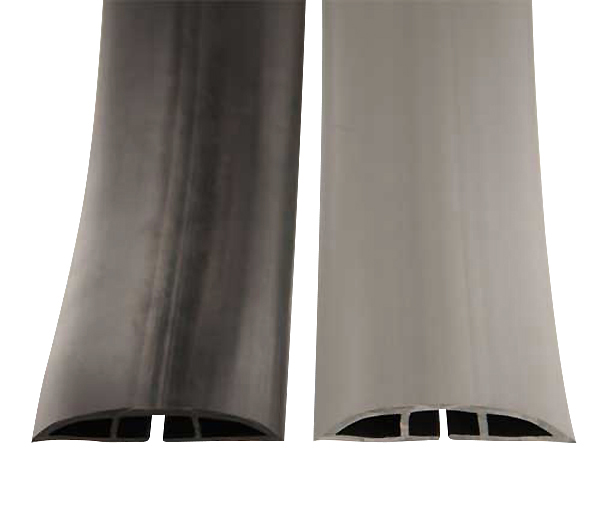
Now that we’ve gotten your attention — and have probably left you curious about what we are about to unveil about cord cover — let’s first focus on the term of the day: wire management.
If you are not familiar with it, we will give you a brief definition of “wire management” — also known as cable management — and how it relates to cable protectors and cord covers. It is the management of wires, cables, hoses, and similar items.
Here's a scenario where cable management was not used and should have been: you power up your generator, place it the appropriate distance per code away from your building; and then run the power cord to your appliances. That length of cord is now exposed not only to pedestrians who can trip over it, but also to vehicles that can destroy it. If your cord is harmed, it can result in safety hazards, as well as power loss from your generator.
Another possibly more common example can be found in an office. It is here where a device like a printer and coffee maker may be stationed near one another, with no nearby power outlets. You may have their cords snaked on the ground, creating another potential trip hazard.
Warehouse environments are another location where wire management is necessary. It is here where there could be countless items that need to be plugged into the wall and positioned elsewhere. The problem is, this is where a forklift could simply tear the power cords for those items to shreds.
Q. Now that you know cable protectors are a necessity, what is the solution?
A. Cables and wires just lying unprotected on the ground can result in unnecessary and irreversible damage to your equipment. They also pose safety issues to pedestrians. In essence, a small investment in cable protectors could eliminate down time among your staff and/or crew. These can prevent inconveniences to your business and customers, along with personal injury.
Q. Why are the Rubber Duct Cord Covers a great solution?
A. With their low profiles, variety of styles and durable construction, rubber ducts are superior to plastic cord covers. They are also much more affordable than polyurethane, with some types able to still withstand vehicle traffic. Why are rubber ducts better than plastic cord covers? Because they always lay flat, can withstand high volume traffic, and have a much higher resistance to wear and tear damage.
Q. Who uses/buys cord covers?
A. Everyone! Cord covers are used in environments such as carnivals, sporting events, offices, musical performances, and other locations. However, anywhere there is a generator, appliances, or just cables on the ground, there is a need for a cord cover. Wire management is becoming a necessity because it makes life simpler and safer.
Q. What's in it for you?
A. When you shop for a cord cover at CableOrganizer®, you will get one that we stand behind 100%. If you have questions and need help with selecting one, let us know what you are protecting (types of cables and how many), along with what you are protecting them from. We will recommend the perfect cable protector for you from there. You are bound to find the right match because CableOrganizer® has practically every solution for cable protection.
Shop for cord covers at CableOrganizer® today.


